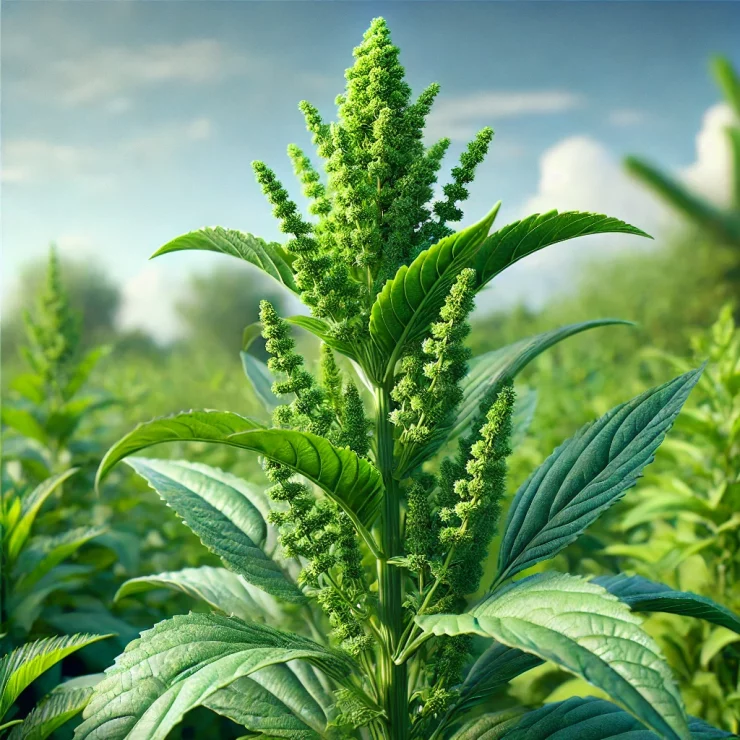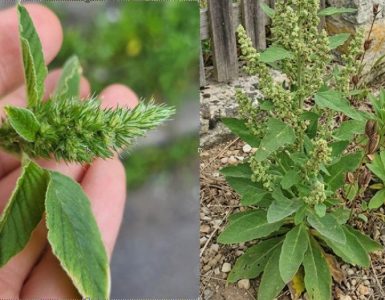Pigweed, also known as amaranth, is a nutrient-dense plant that offers various health and agricultural benefits. Here are 10 benefits of pigweed:
Rich in Nutrients: Pigweed leaves are packed with vitamins (like vitamins A, C, and K) and minerals such as calcium, magnesium, potassium, and iron, making it highly nutritious.
High in Protein: The seeds of pigweed (amaranth) are a great source of plant-based protein, containing all nine essential amino acids, making it a complete protein source.
Gluten-Free Grain: Amaranth seeds are gluten-free, making them an excellent alternative grain for individuals with celiac disease or gluten intolerance.
Antioxidant Properties: Pigweed contains antioxidants such as flavonoids and phenolic acids, which help protect the body from oxidative stress and reduce the risk of chronic diseases.
Supports Digestive Health: Both the seeds and leaves are rich in dietary fiber, which helps improve digestion, promote bowel regularity, and prevent constipation.
Helps Manage Cholesterol: Studies suggest that amaranth seeds can help lower LDL (bad) cholesterol levels due to their high fiber and phytosterol content, supporting heart health.
Anti-Inflammatory Effects: Pigweed has anti-inflammatory compounds that may help reduce inflammation, beneficial for people suffering from inflammatory conditions like arthritis.
Boosts Immune System: The high levels of vitamin C in pigweed leaves can boost the immune system, helping the body fight off infections and maintain overall health.
Promotes Bone Health: Pigweed is a good source of calcium and magnesium, both crucial for maintaining strong bones and preventing osteoporosis.
Drought-Resistant Crop: Pigweed is a resilient plant that grows well in poor soil conditions and drought-prone areas, making it a valuable crop for food security in challenging environments.
Pigweed is versatile, whether consumed as leafy greens or as grains, and offers health, nutritional, and agricultural benefits.






Add comment